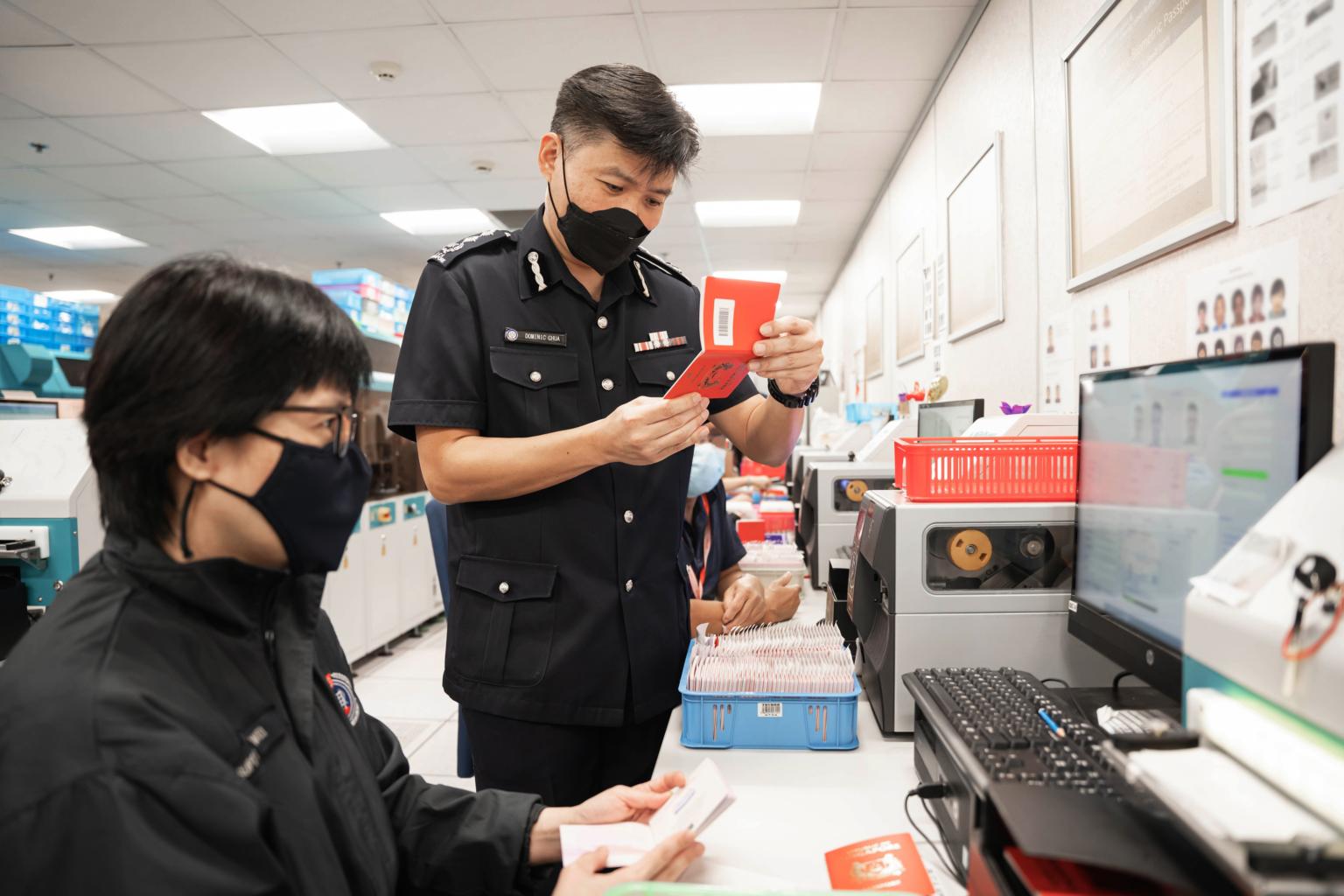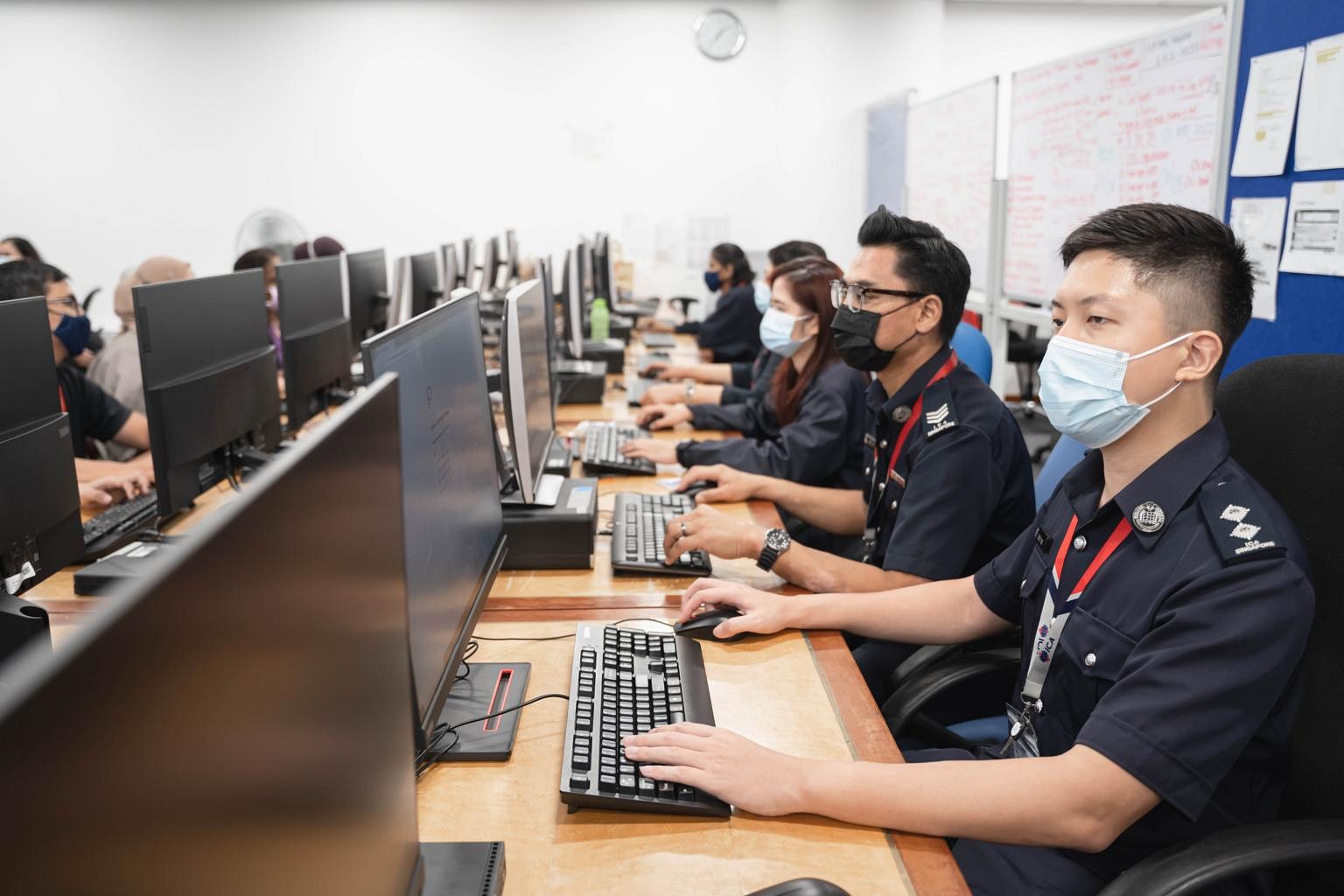How the Singapore passport is produced
Sign up now: Get ST's newsletters delivered to your inbox

Senior Assistant Commissioner Dominic Chua checking a passport at the ICA Building in Kallang Road.
PHOTO: ICA
SINGAPORE - While the Immigration and Checkpoints Authority (ICA) is now producing 6,500 passports daily, up from 2,000 in 2019, its officers perform thorough checks on the applications and production of the document to ensure its quality, said Senior Assistant Commissioner Dominic Chua, director of the ICA's citizen services centre.
Checks are also in place to ensure the passports meet international requirements and holders are not refused entry while clearing immigration overseas.
The biometric passport, which gives Singaporeans visa-free access to 192 destinations, includes multiple security features such as laser images and designs that make it difficult for forgers to duplicate.
These are the steps involved in producing a passport:
1. People apply for a passport online using Singpass or submit a paper application to the passport unit at the ICA Building in Kallang Road.
2. Officers check whether the applicant is eligible for a passport and determine the validity of the passport to be issued. Since last year, the default validity for passports is 10 years. However, for children below 16, the validity is capped at five years as their facial features will change as they grow.

3. Details such as the applicant's name and date of birth will be laser engraved into the passport's polycarbonate biodata page, a process that makes it extremely difficult for others to tamper with.
4. Officers check each of the 6,500 passports currently produced daily to ensure there are no physical defects such as misaligned text. The passports are then run through machines which ensure that the biometric chip - encoded with the applicant's data including facial features and fingerprint - can be read.
5. The passports are sorted based on collection timing and location before they are issued.
6. For Singaporeans who have yet to enrol their facial and fingerprint biometrics, they will do so upon collection and ICA's machines will ensure this data can be read.


